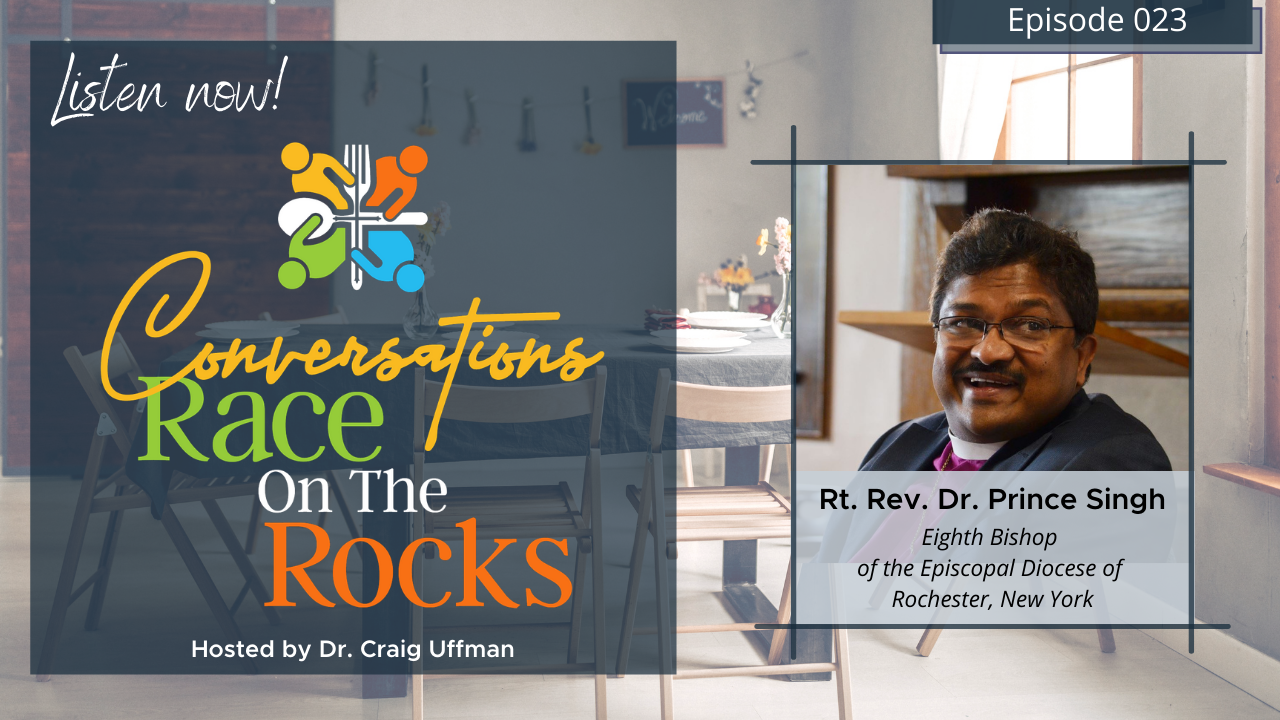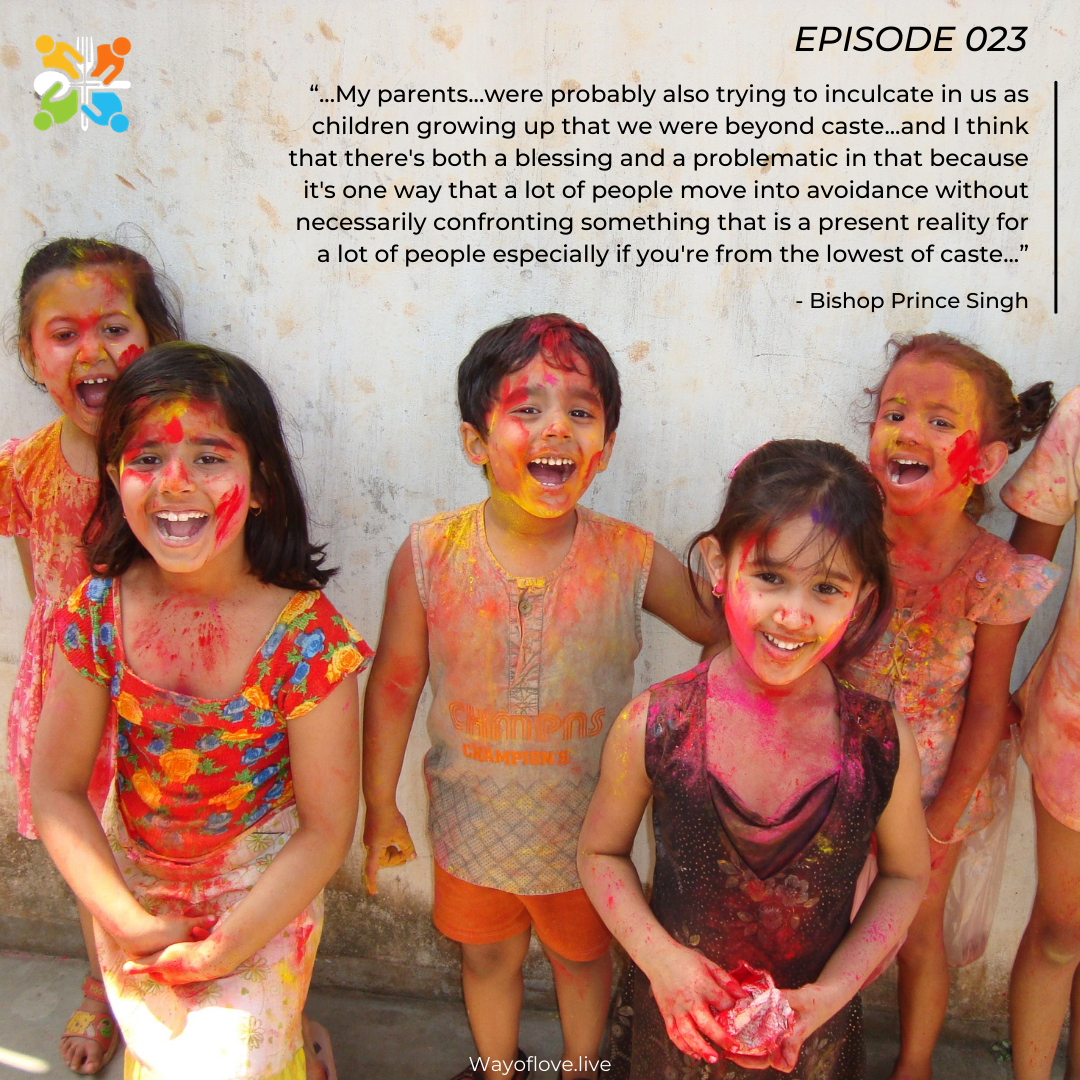“...My parents...were probably also trying to inculcate in us as children growing up that we were beyond caste...and I think that there's both a blessing and a problematic in that because it's one way that a lot of people move into avoidance without necessarily confronting something that is a present reality for a lot of people especially if you're from the lowest of caste...” - Bishop Prince Singh
Listen now on Spotify, Apple Podcasts, Google Podcasts, Stitcher and more!

I am so happy to have Rt. Rev. Dr. Prince Singh join me in this episode of the podcast not only because of the invaluable wisdom that he has to offer but also because he is such a dear friend. Rt. Rev. Dr. Prince Singh is the eighth and current bishop of the Episcopal Diocese of Rochester, NY. He was born in the larger state of Tamil Nadu in South India where he served many congregations as an Anglican priest before coming to the United States. While earning his PhD in New Jersey, he served multiple parishes and became such a powerful spiritual force that the people of Rochester called him to be our bishop. He joins me to share his personal experiences of wrestling with racism in both South India and here in the United States.
I met Prince ten years ago when I came to lead a parish here a year after he became the bishop. Bishop Prince has spent quite a long while leading people to grapple with the challenges of racial reconciliation, and he is here today to help us reflect on something that has been discussed several times in previous episodes of the podcast – caste. He reflects on his childhood and where he grew up, revealing that he grew up in a Christian family and that, as a young adult, he got his undergraduate degree in Zoology and his graduate degree in Public Administration.
Interestingly, Prince grew up as a boy not seeing the world through the perspective of caste. In fact, as he narrates in detail, he didn't have a great awareness of it and didn't really learn about it until later on when he encountered it for the first time. He theorizes as to why that is and admits to having been privileged because of his family's socioeconomic status and his parents having been college educated, describing his lack of awareness of the caste system as a child as a blessing but also problematic.
Prince also addresses the multifaceted nature of colonialism and how, from his perspective, it isn't all about domination and has actually had some positive impacts as well. He discusses the two components of caste and the intersectionality between caste and gender, ultimately ending here by pointing to the huge differences that he and his wife Roja Singh have helped make reality for many young girls who were otherwise victims of the caste system. In our next episode, Bishop Prince will be returning, and we will be continuing this conversation. We will follow his story to the United States and will learn how he experienced some of what we have been talking about in previous episodes of the podcast. Please join us, and be sure to tell friends who might be interested in the podcast about us!

Show Notes
[1:09] – Dr. Uffman announces Rt. Rev. Dr. Prince Singh as this episode’s guest and briefly touches upon his credentials.
[3:27] – Bishop Prince helps us visualize where he grew up.
[5:14] – We learn about Bishop Prince's educational background.
[7:38] – Bishop Prince talks about his family's economic status while he was growing up.
[8:31] – Bishop Prince describes what the weather was like where he grew up, sharing that it was very hot and humid.
[11:17] – Dr. Uffman alludes to caste and recognizes it as a tool that we can use to help understand our current racial tensions.
[12:49] – Bishop Prince reflects on his childhood and what his experience was like as a Christian boy in his state.
[14:05] – We hear Bishop Prince recount one specific encounter when he observed caste play a role via someone's behavior.
[16:12] – Bishop Prince discusses his observations of villages having two parts because of caste.
[18:08] – Bishop Prince reveals that he encountered the concept of caste the most after becoming a priest, and he explains why.
[20:06] – Bishop Prince posits theories as to why he didn't grow up with much awareness of caste division.
[22:47] – Bishop Prince discusses colonialism and how it is a multifaceted system with many layers.
[25:42] – Bishop Prince credits the missionary movement as having had positive influences within India.
[28:06] – We learn a little bit about Bishop Prince's time as an Anglican priest in India.
[31:00] – Bishop Prince describes his early engagement as a priest in South India as adventurous.
[33:51] – Bishop Prince points out the problematic nature of state-enforced prevention of people choosing their own religion.
[36:51] – We hear about the flaws within Christianity because of how caste is sometimes followed even within the Christian faith.
[38:57] – Bishop Prince addresses the intersectionality between caste and gender.
[40:45] – We learn what the term manual scavenger means.
[43:48] – Some children would drop out of school because of being treated as manual scavengers, even by teachers.
[45:23] – Dr. Uffman reflects on how the differences that Bishop Prince and his wife Roja Singh have begun to make for young girls make for grounds for hope.
Links and Resources
Episcopal Diocese of Rochester – About the Rt. Rev. Prince G. Singh
Program - Dalit Solidarity Forum in the USA, inc.
Connect with Dr. Craig Uffman:

